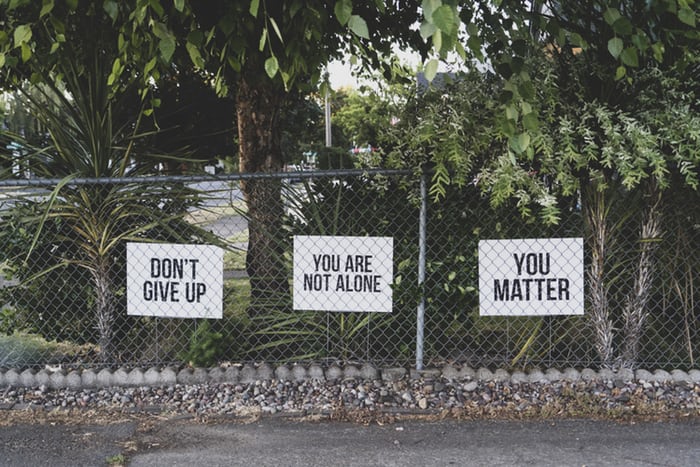We live in a world where there exists somewhat of an extreme stigma surrounding mental health.
A stigma is when someone sees you in a negative way due to something about you, in this case, your mental illness.
Social stigma and discrimination can make mental health problems worse and stop a person from getting the help they need.
In general, social stigmas can cause:
- Shame, hopelessness, and isolation
- Reluctance to seek help
- Lack of understanding and communication rifts among family, friends, and colleagues
- Less opportunities socially and employment-wise
- Harassment
- Self-doubt
Research shows that about 75-80% of employed individuals struggle with mental health issues, yet, still, 80% of those 80% report that the stigma that comes along with mental health prevents them from seeking health care.
This is a problem for those suffering, and for employers. After all, mental health conditions are highly common and treatable and when employees resist treatment, work ethic and performance decreases.
So, how do we combat this in the workplace?
First of all, you, me, and all of us need to realize that mental health conditions and illnesses are just like any other conditions: diabetes, asthma, heart disease, eczema, etc. They are treatable and part of being a human being! On top of that, mental health conditions left untreated are associated with the prevalence, progression, and outcome of certain physical conditions. Ignored mental health conditions lead to serious and costly health issues in general, which is difficult for the employee and your bottom line, as the employer. For The risk for heart attacks and strokes is twice as high for those with mental health conditions, as well as the development of Type II Diabetes.
Secondly, address the stigma head on and make sure ALL employees feel supported. Establish TRUST in your workplace and set the tone for a productive and mentally healthy work environment.
Without safety and trust, and with workplace and social stigmas, a never-ending paradox and vicious cycle begins:
If you believe you don’t deserve treatment, you won’t seek treatment. Your symptoms get worse, and your feelings of hopelessness and self-doubt increase. On top of all that, the ADA does not recognize mental illness as a disability, and employers suffer from a lack of understanding and the inability to offer benefits, skills training, and environmental boosts to those suffering.
So here we go: Infuse empathy and compassion into your workplace culture. This is beneficial in creating mentally healthy workplaces. And eradicate the stigma of mental health: talk about it – not a secret – or doesn’t have to be – it’s part of life!




